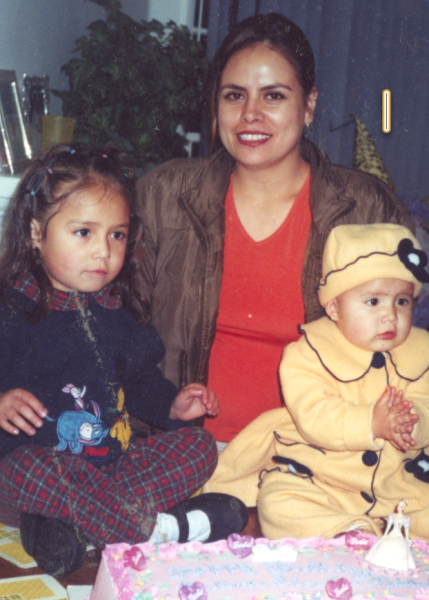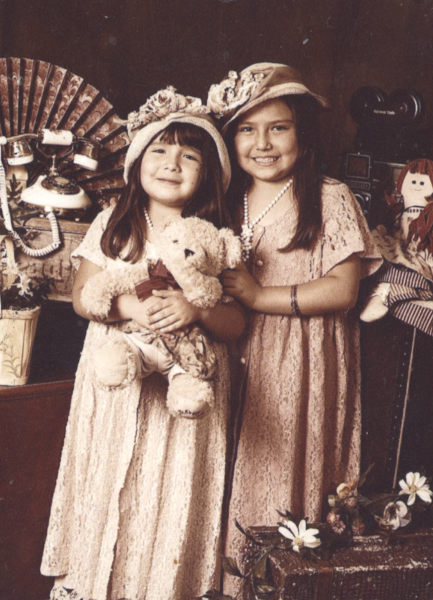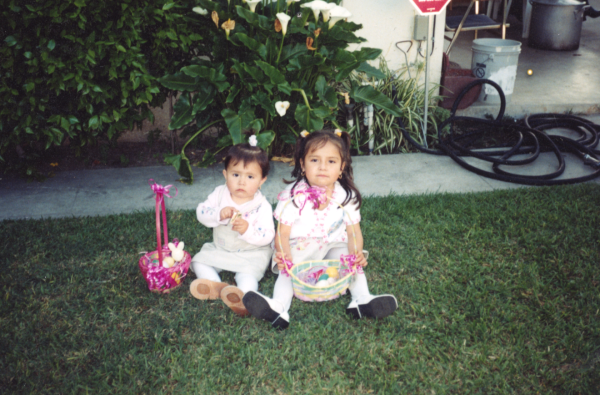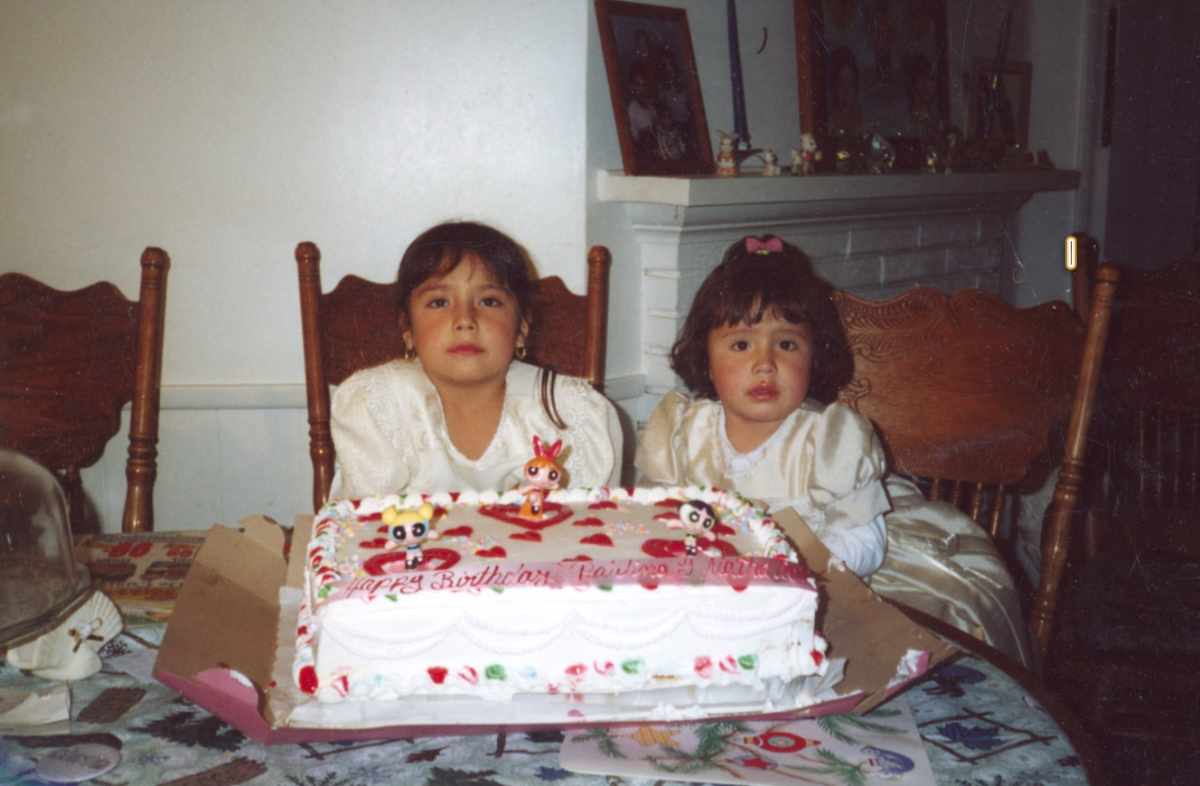I was in the middle of an activity in my third grade class when the phone rang and my teacher Mrs. Ortega rushed to the opposite side of the classroom to answer the call. It wasn’t long until Mrs. Ortega walked over and informed me that I was expected at the office. I packed up my stuff, pushed in my chair, and said “bye” to my friends, but little did I know that this would be my last time setting foot at Edgemont Elementary. I walked into the office and was greeted by a detective sitting to the right in a small cubicle. He had a stern look on his face and a badge hanging from his neck that indicated his importance. Immediately, I knew something bad had happened.
Many children each year are separated from their families and put into foster care for numerous reasons. According to the U.S. Children’s Bureau, which is part of the Department of Health and Human Services, as of 2023, there were 391,000 children in foster care, and up to 80% of those children suffer from mental health issues. These mental health issues arise due to the traumatic experiences that they are facing at young ages.

After being put into foster care, I was distanced from my mother, and the constant worry of when I would be able to see my mom was all I could think about as a 9-year-old. The worry and stress would linger in my head from morning to night. A month after we were taken away, my mom was deported because she was undocumented. Although I was placed with my aunt and uncle, the love from a mother was irreplaceable and it still felt lonely. Coming home from school knowing that my mom wouldn’t be at home waiting for me with open arms to give me a hug was extremely difficult. The relationship I had with my mom post-separation was not the same as it had previously been, and this caused a lot of anger and loneliness.
Megan Yoshihara, a Marriage and Family Therapist Intern at Higher Ground Youth and Family Services in Anaheim, says, “Even if you have the best adoptive parents or foster parents in the world, it really is an attachment trauma and it’s very difficult for foster youth not to be affected by that breach.” Yoshihara also mentions that despite there being struggles with distrust, forming relationships with foster youth is crucial.
According to Foster Care Associates, “Attachment trauma is the disruption of bonding between a child and their primary caregiver.” Some characteristics that can arise from having attachment trauma are low self-esteem, lack of self-control, and the ability to develop and maintain friendships. These traits have the ability to impose long-lasting effects.
Even though I was placed with family, it was hard to open up to my aunt and uncle about my feelings at the time since I felt like they had a lot going on. They had to keep up with the court hearings, speak with social workers, and fill out all the paperwork that came with fostering my sister and me. I began attending court-ordered therapy, but it was challenging because opening up about my emotions and what I was feeling was all new to me.

“There’s a lot of kids that don’t want to talk about the trauma. There’s a reason why they were removed from their parents. So this trauma is very big, it’s heavy,” says Bianca Diaz. Diaz has been a social worker for two years and currently works in a program called Permanency Services, working with children from ages 10 through 18 years old. “It’s hard to speak about the unspeakable, so I do not expect them to blur everything out and start addressing all these things,” Diaz says.
My separation from my parents and going into the foster care system caused me to develop generalized anxiety disorder, which carried into my adulthood. I became very quiet and was always worried about where I might end up next. Because of my anxiety, I didn’t think I was capable of doing schoolwork and I was afraid I would be called dumb.
The National Conference of State Legislature states that 9.4% of children who are in foster care suffer from generalized anxiety disorder. That is nearly twice as much as the general adult population, which is 5.1%.
Diaz mentions how children who come to the agency that she works for all struggle with depression, anxiety, and loss of attachment. Some children also have trauma from child abuse they’ve experienced before going into foster care. About 75% of her clients struggle with mental health. Diaz says that even if the child does not say “I am struggling with my mental health,” she notices that they are very quiet and don’t really want to talk about their past or acknowledge what is happening to them.
When I lived with my mom, she would always sit down and help me with my homework after school while she was cooking caldo de res or pozole for the family. But after we were taken from her, I didn’t have anyone to advocate for my education. Sometimes, social workers would come to school and I would be pulled out of class to go and speak to them in the office. I felt embarrassed and different, which made me pull away from my teachers and peers. I wanted to feel normal. Every time a topic would arise about parents I never knew what to say. I would not mention my situation to anyone around me in school for fear of being made fun of. I thought I could keep it a secret, even from my teachers. That made it harder to do well in school. I could never retain information or earn higher than a C average.
Diaz mentions that some children in foster care tend to have learning disabilities. According to the Learning Policy Institute, Students in foster care are more likely to face educational barriers due to experiencing trauma in family separation or the circumstances that can lead to being placed in foster care. “On state tests, students in foster care were less than half as likely as other students to meet the proficiency standard in English language arts (24% vs. 51%), and even less likely to meet proficiency standards in mathematics (15% vs. 40%).”

A year after I was separated from my mom, I was able to start seeing her regularly in Guadalajara, Mexico. My sister and I would visit for two months in the summer. It was still heartbreaking to leave at the end of every summer and watch my mom cry as she said goodbye to us. Now, we talk on the phone almost every day.
As an adult, I still struggle with anxiety and depression, but I’ve learned how to cope with it. I’ve also learned how to empathize with people because of what I went through as a child. When you don’t have a parent raising you, you have to grow up quickly, and you feel separated from your peers. This takes a toll on your mental health, but it can also teach you resilience. Thinking back on having to leave my mom every summer, I now feel empathy for her pain. I’m 23 now, and I’ve learned how to deal with my suppressed feelings and understand that they come from my childhood trauma, but they don’t define me. The trauma that children face because of being placed into foster care does not define who they are but it shows what they are capable of overcoming despite the odds that they may face.
If you are a current or former foster youth, click here for resources and scholarships available to you.
Taken from the Fall 2023 print issue of Inside Fullerton. Read it here.



